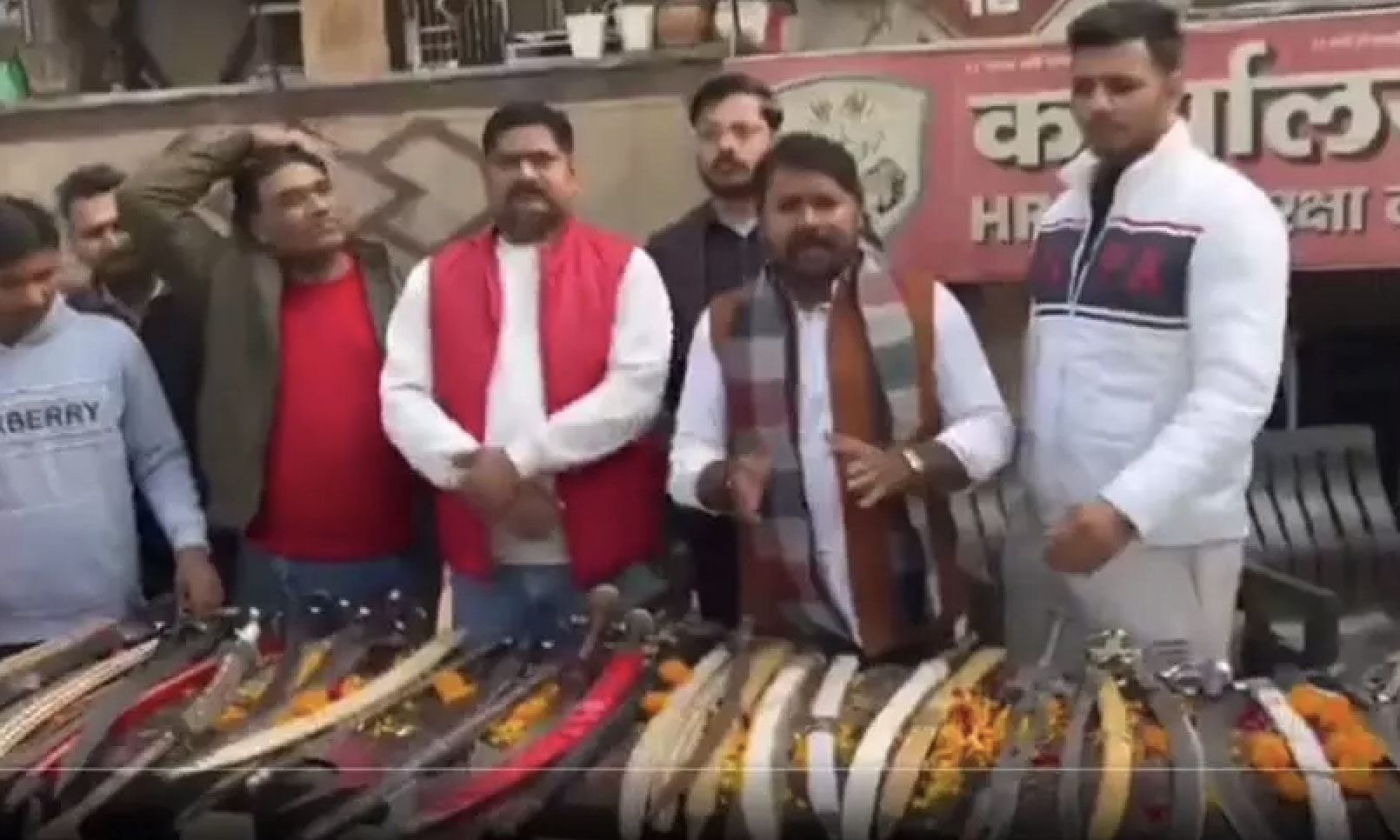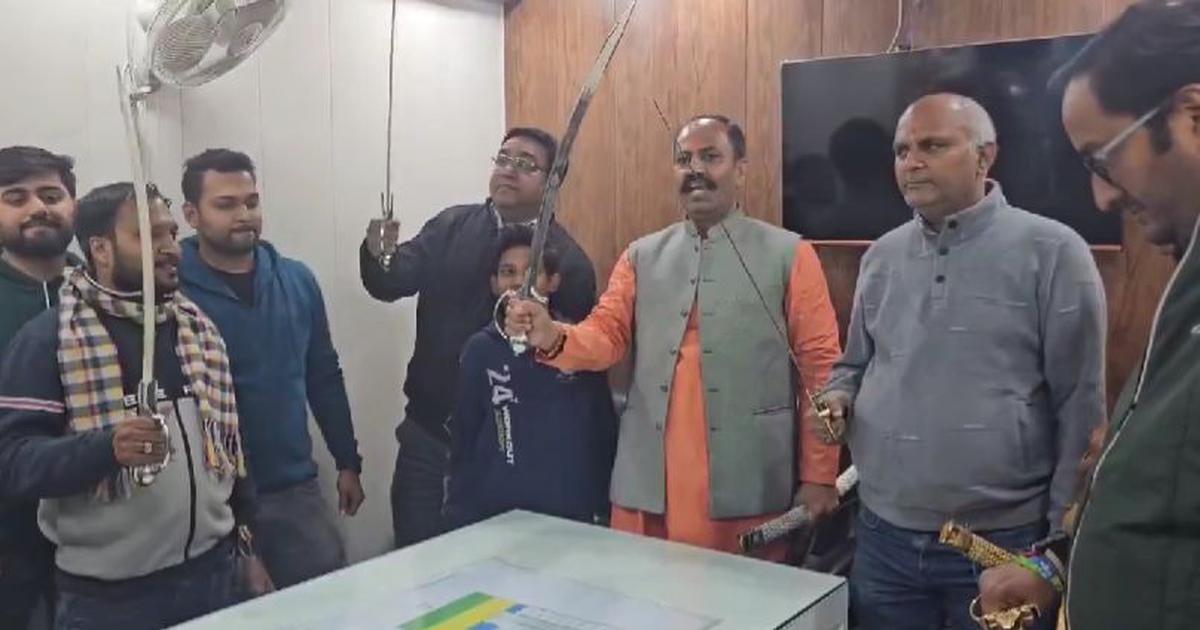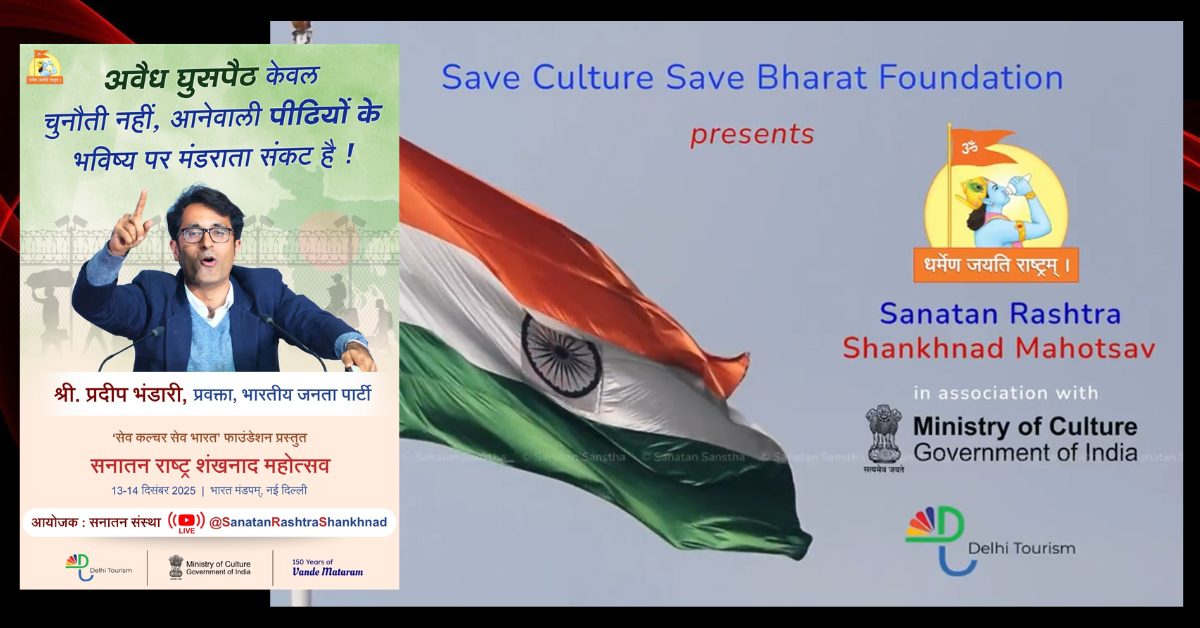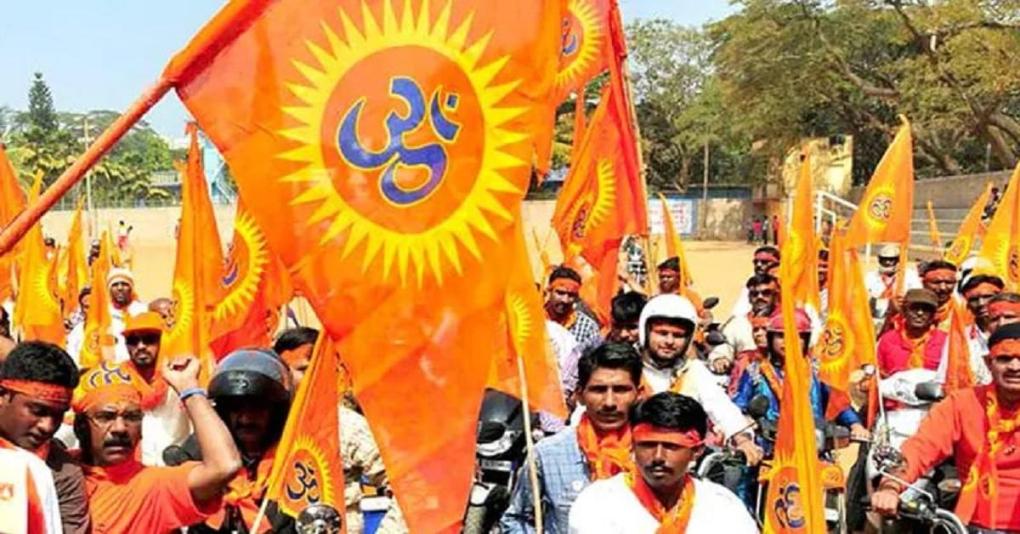The disturbing rise of Hindutva supremacism in India has been mirrored by a corresponding growth of extremism in the Indian diaspora, particularly in the UK where the efforts of such groups are now feeding into public policy decisions, says Amrit Wilson.
In the six weeks or so before UK’s 2019 general election, WhatsApp messages started circulating urging UK’s Hindus to vote Tory, claiming the Labour Party was anti-Indian for criticising Modi’s policies in Kashmir. Soon after, in the Gujarati Hindu heartlands of Leicester, Harrow and Brent leaflets dropped through people’s doors emphasising this message. Then, with just over two weeks left till election day, a spokesperson for the Hindu Council made a statement in support of Rabbi Mirvis’ claim that Labour Party is anti-Semitic, adding that it is ‘anti-Hindu’ too.
It was a very public flexing of muscles and declaration of position by Hindu far-right groups who, as their interventions indicated, are directly linked to the Modi regime. To understand them we must look at the Bharatiya Janata Party (BJP) and the Sangh Parivar, the family of Hindu supremacist organisations (including killer gangs, cow vigilantes, cultural and students’ organisations and women’s wings) to which the BJP belongs, and in particular at the Rashtriya Swayamsevak Sangh (RSS), the authoritarian, militarist, cadre- based organisation which controls this sinister family.
The pivot around which the Hindu far-right revolves
People often hesitate to use the word fascist but it is the only accurate description of the RSS. Established in the 1920s, in Nagpur, in Maharashtra, in opposition to India’s anti-colonial movement, it is the pivot around which the Hindu far-right groups in India, and also Britain, revolve. It provides ideological direction, as well as leaders. Narendra Modi, for example, is a life-long RSS member, as is his powerful Home Minister, Amit Shah, most BJP cabinet ministers and Chief Ministers of BJP ruled states. In Britain many leaders of organisations allying with the BJP are members of the HSS, its overseas wing.
The RSS was modelled on Mussolini’s Black Shirts and inspired by the Nazis. Its ideologue M.S. Golwalkar, for example, regarded Hitler’s treatment of Jews as a model of ‘race pride’ which India should emulate in its treatment of minorities. Its views on religion also do not originate in India’s ancient history but are drawn from the ‘scriptural’ and elite-based interpretations of Hinduism encoded by British colonialism, and their deliberate policies of divide-and-rule in response to the first war of independence of 1857. It has also adopted the strategic British rewriting of Indian history as an age-old struggle between Hindus and Muslim ‘invaders’. These distorted ideas of religion and history together with some basic tenets of European fascism have helped shape the Islamophobic and misogynistic notion of Hindutva which, though sometimes mistaken to be a religious philosophy, is in fact the political ideology of Hindu supremacy.
Like many other fascist organisations, the RSS wishes to extend its territory creating a right-wing Hindu Indian state or Akhand Bharat extending across South Asia and swallowing up Pakistan, Bhutan, Nepal, Bangladesh, Afghanistan and Myanmar. It also aims to establish a world community of right-wing Hindus.
In 1947, it set up one of its earliest, and in hindsight, most fruitful overseas outposts in the heart of the Hindu immigrant community in Nairobi in Kenya. The Nairobi branch launched Shakhas (‘activity centres’ where children and adults are taught the RSS version of Indian culture and history and provided physical training to be fighters for Hindutva) and organised Satsanghs (gathering where revered leaders of the RSS held discussions and religious songs were sung) and successfully drew in the Gujarati community, who were mainly from a rural background and eager like many immigrants to set in stone the deeply conservative traditions they had brought with them.
In 1966 an RSS office bearer who had emigrated to the UK received an order from M.S.Golwalkar himself telling him to set up a branch in London. Initially, as HSS records tell us, the new branch struggled for manpower (it was run entirely by men) and its activities were comparatively low key. This changed when East African Asians started arriving in Britain in large numbers as a result of the Africanisation policies in Kenya, Uganda, Tanzania and Malawi. By the end of the 60s Shakhas had sprung up in cities like Leicester, Birmingham , Bradford and in Harrow and Brent in London where the refugees had settled.
East African Asian communities and their changing identities
The new communities had brought with them their view of the world and the intense racism against people of African origin, which came from their intermediate position in the rigid racial hierarchy of Britain’s East African colonies (they had been located below white people but above, and looking down on, Africans).
However when they entered Britain they faced blatant racism. Their British passports were at first not considered sufficient for entry into the UK and some were rendered stateless. Stripped of their wealth and status, the men tried, often unsuccessfully, to get white collar work, while the women, who had rarely worked outside their homes and communities were forced to take up the lowest paid, most unpleasant jobs in small factories and sweatshops simply to make ends meet.
In the 70s, I was lucky enough to conduct a series of one to one interviews and conversations with women who had arrived comparatively recently from East Africa for my book ‘Finding a Voice, Asian Women in Britain’. Women like Prabhaben (not her real name), for example, who was in her late thirties, and worked in harsh conditions in a laundry. She told me how she felt:
‘I came to Britain from Nairobi in 1968. There [I had] such a wonderful life. The life of a boss. The days seemed to be longer, the air sweeter than it can ever be in England…. I used to be proud. We had servants. Here it is we who are the servants’. [In the laundry] ‘our women suffer, they are paid low salaries, they have to face the insults of the supervisors…all English women. They don’t know English but it is more than that. It is that all your life you have been soft and this treatment stuns you… but one or two of us have begun to speak up’.
This story was originally published in ihrc.org.uk . Read the full story here






